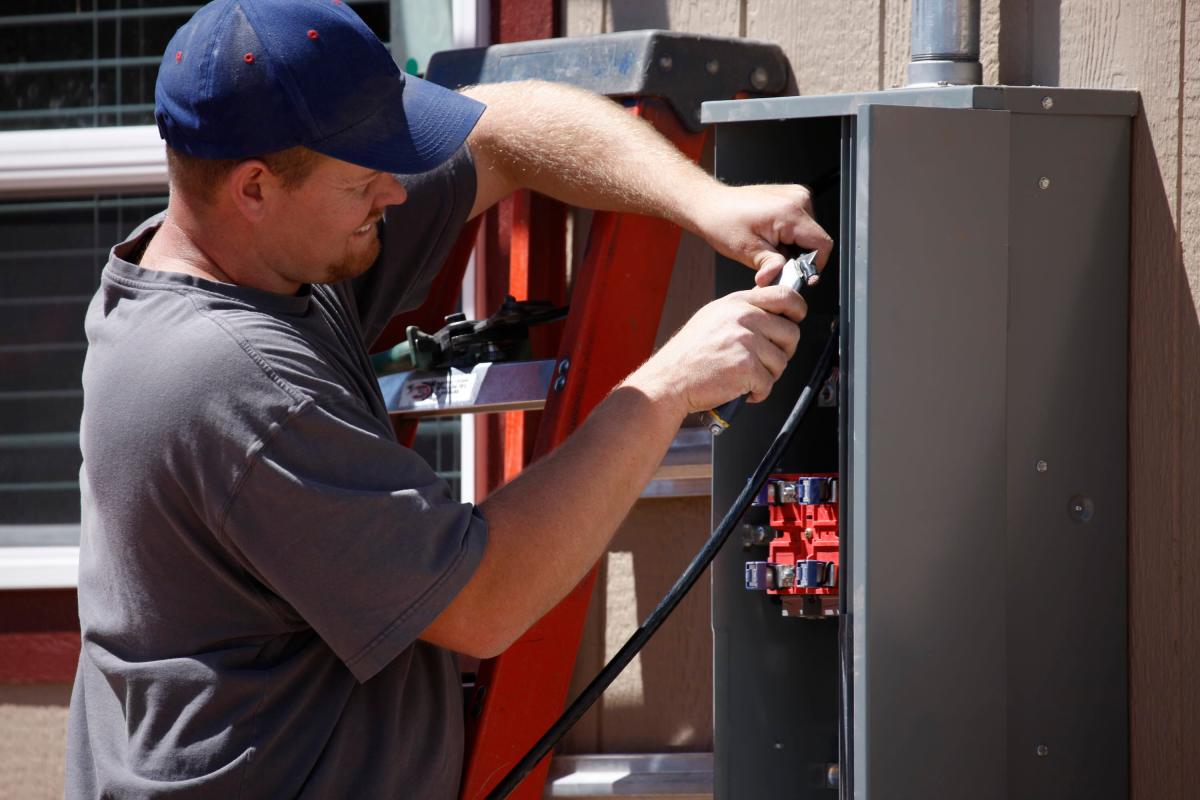The U.S. is facing a shortage of electricians, with unfilled jobs in the field expected to grow by 11% per year over the next decade, according to the Bureau of Labor Statistics. But because prospective electricians in the U.S. typically need to log 8,000 hours before they can get their license, the shortage won’t ease anytime soon.
In normal times, the shortage may pose an inconvenience while the labor market shifts in response. But the U.S. is in the midst of a tectonic shift in how people and businesses use electricity. Adding solar panels, swapping furnaces for heat pumps, and adding electric vehicle chargers — they all require electricians, piling projects on the limited number in the workforce today.
“That pipeline takes a long time to build, and there’s not going to be a lot of relief coming in the next five to ten years,” Erik Owski, co-founder and CEO of Treehouse, told TechCrunch. “We have to make the existing workforce more efficient.”
In building trades, inefficiencies can come in many forms, but one of the most prominent is the site visit to scope and quote a job. “Do you have to roll a truck?” Owski said. “In most cases, if there’s a bit of uncertainty, they roll a truck.” Depending on where a job is located, those visits can consume precious hours.
Owski and his co-founders, several of whom previously worked at LinkedIn, started Treehouse with those visits in mind. To minimize “truck rolls,” the company has gathered data on housing footprints and the details of various electrical jobs in a range of homes. It has fed those into AI models to predict how long it’ll take a new job to complete and how many materials it’ll require.
According to Owski, the company has made progress, particularly on simpler jobs like EV charger installations. “We do the vast majority of EV charger installs, I think well north of 90% without a truck roll prior to the day of installation,” he said.
For those jobs, Treehouse asks the customer a handful of questions, including what are the major uses of electricity in their home, like stoves or water heaters. That helps the company determine if the homeowner will need to upgrade their electrical connection or main panel. The survey also asks people to drop a pin on a map to show where they would like their charger to go. The goal is to give customers a quote while they’re sitting at a car dealership.
“They need clarity on pricing, and if they’re going to finance that purchase, we have to be very good at it,” Owski said.
Beyond EV chargers, Treehouse will also install heat pumps, whole-house batteries, and thermostats, and electrical panels. For more complex jobs like heat pumps, the company will ask the homeowner to submit more details, including photos of their home’s circuit breaker. If the company still needs more information, it’ll try a virtual visit with the customer, and if that fails, it’ll roll a truck. “We are building automation to avoid those surprises,” Owski said.
Treehouse has plenty of competition in the space, including Qmerit, Kopperfield, and Zero Homes.
Like much of its competition, Treehouse quotes the job, designs the installation, and develops a plan for the permit application. In many cases, it then hands that off to an independent electrician to do the work.
Unlike some other platforms, which focus on generating leads for contractors, Treehouse is licensed as an electrician and serves as the lead contractor, with independent electricians working as subs. In California and Colorado, Treehouse also employs its own electricians, and it plans on hiring more in six to eight other markets over the next year, Owski said.
The startup recently raised a $16 million Series A led by Flourish Ventures with participation from Acrew Capital, CarMax, Eaton, Holman, Invest Detroit, InVest Ventures, MassMutual Ventures, Montage Ventures, Veriten, and Virta Ventures.
Owski said the funding will go toward hiring more engineers to improve the models that help it automate quoting. It’s also expanding geographically; currently, Treehouse works in 40 states, and Owski said it should be in all 50 by the end of the year. The company currently has partnerships with Carmax, Holman, Emporia, Quilt, and ChargePoint.
EVs might be many people’s entry point to electrification, but Owski thinks that’ll just be the first step for many. “I think we’re going through a multi-decade super cycle,” Owski said. “EVs are going to transform the way the average consumer thinks about home energy.”





Leave a Reply